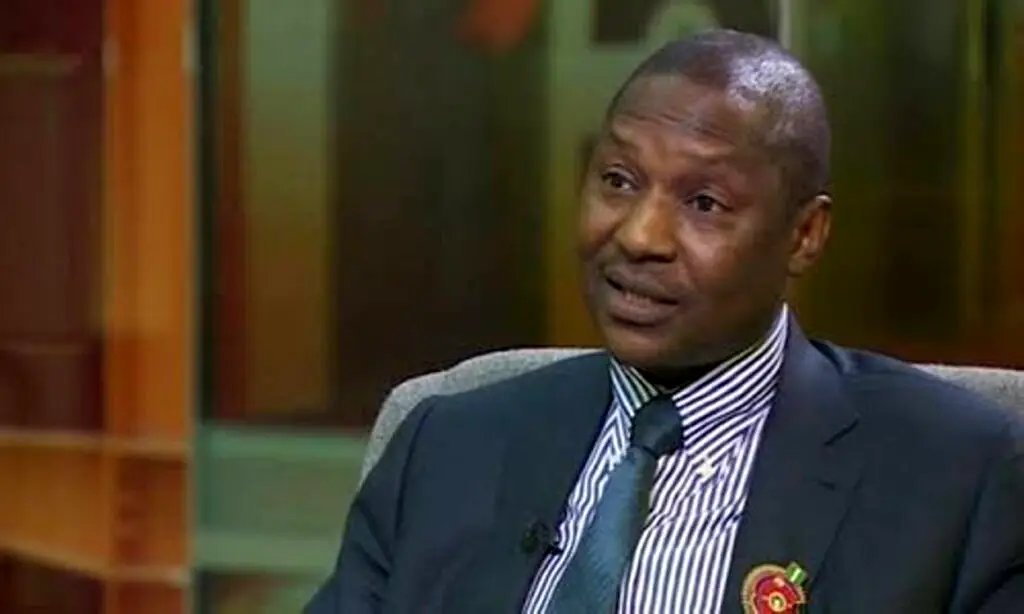The last may not have been heard of the twists and turns of the treason trial involving the leader of the Indigenous People of Biafra (IPOB), Nnamdi Kanu.

Despite the court ruling asking Nigeria to return Kanu to Kenya and pay him N500 million as compensation, the Federal Government is not inclined to free him based on several factors, the Attorney General of the Federation and Minister of Justice, Abubakar Malami, has said.
According to Vanguard, Malami said that the rendition of Nnamdi Kanu could not be used as the only basis to free the IPOB leader of other offences allegedly committed by him against the Federal Government of Nigeria.
The Umuahia Division of the Federal High Court, had on Wednesday, October 26, ordered the federal government to return Kanu, to Kenya from where he was repatriated to Nigeria on June 19, 2021. Delivering judgement, Justice Evelyn Anyadike, also awarded N500 million in general damages to the IPOB leader.
The Justice Minister however explained that the government was holding on to Kanu on account of four major issues, which were preceded by the rendition matter for which the court cleared him.
Malami said, “To release or not to release Nnamdi Kanu is a function of law and the rule of law for that matter. In arriving at a decision on whether to release or not release, is one; you look at the rule of law, two; you look at the public and the national interest, three; you look at the security situation, four; you look at international diplomacy.
“Let me talk first of the rule of law. This is someone that has been granted bail on account of charges that have been preferred against him at the court. Someone jumping bail to the international community, a case of a fugitive is established against the background of jumping the bail.
“Two, arising from the national security, this is someone that is charged with treason, incitement and destruction of civil authority, murder and assassination of others on account of his incitement, that boil down to issues of national security and criminality.
“Three, on account of international diplomacy, this is someone that has against his person, used the international community or a foreign country to launch an attack against a nation, against his nation for that matter.
“So, all these naturally come into play to determine what to do. So, if you have through judicial processes established multiple cases of treason, homicide, bail-jumping among others; the fact that you have indeed succeeded in one case as against multiple others that are pending goes to establish the fact that that case cannot be the only basis and criteria for determining whether you are entitled to be released or not.
The Court of Appeal sitting in Abuja, the Federal Capital Territory on had earlier, upheld the appeal of the detained activist and discharged him of treason charges. Confusion however arose over the interpretation of the Abuja Appeal Court judgement. While Kanu’s lawyer enthused that he had been freed from charges against him, the Office of the Attorney-General of the Federation, maintained that he was merely discharged but not acquitted.